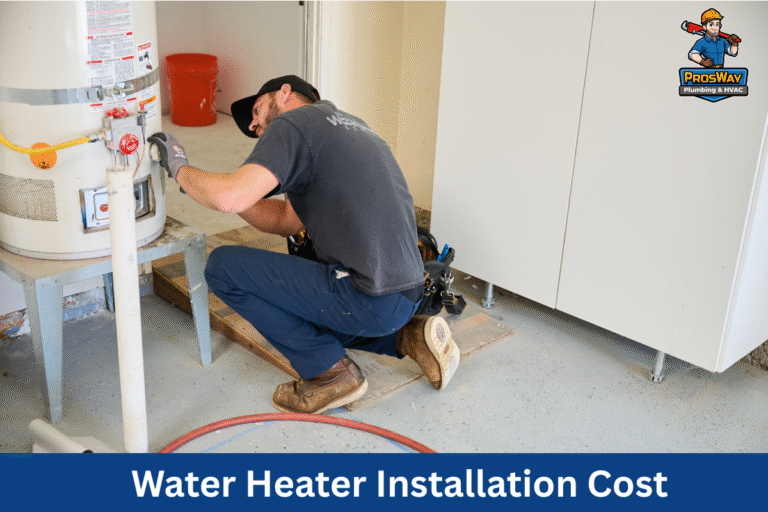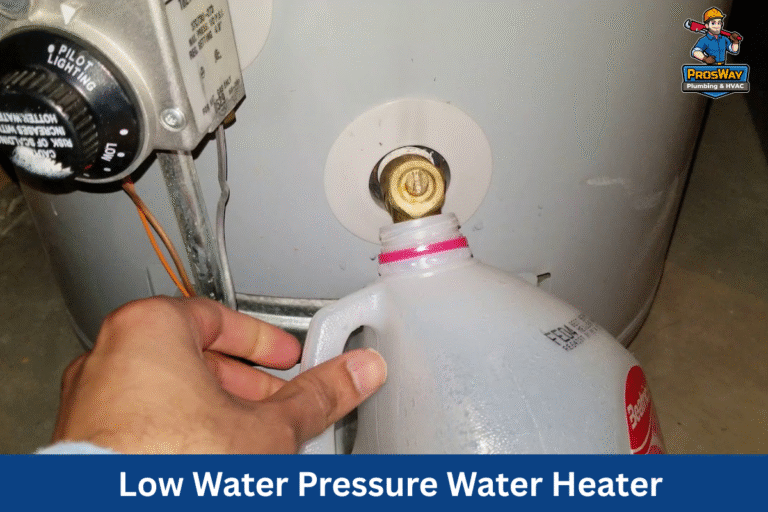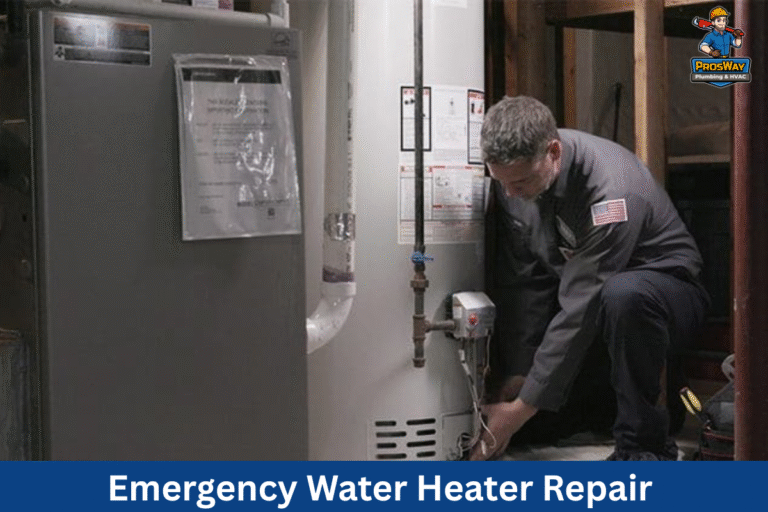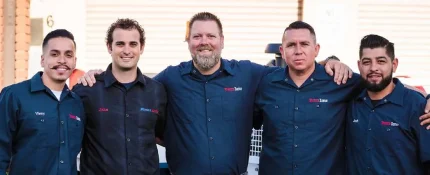When it comes to durability, cured-in-place pipe (CIPP) can last 50+ years, often matching or exceeding the lifespan of traditional sewer lines, especially when properly installed and maintained. In Northern New Jersey, choosing the right option depends on your property’s needs, soil conditions, and long-term maintenance goals. This article examines the lifespan expectations of cured-in-place pipe or traditional sewer line systems and discusses the material and environmental factors that influence their durability.
What is the Expected Lifespan of Cured in Place Piping
Cured-in-place piping (CIPP) is an innovative technology that rehabilitates damaged or deteriorated sewer lines without extensive excavation.
Its lifespan depends on several technical factors, including material properties, projected durability, and warranty aspects.
What Materials Make CIPP Durable?
CIPP uses resin-saturated liners cured to form a new pipe within the existing one. Advanced polymer chemistry grants these liners a resistance rating of over 50 MPa.
The curing process—using heat or ultraviolet light—ensures a continuous, jointless pipe, reducing potential failure points.
The cross-linked resin structure minimizes shrinkage and maintains uniform thickness, which is essential for resisting deformation over time.
Some formulations allow CIPP systems to maintain integrity for up to 50 years when properly installed, while the material’s chemical stability helps prevent degradation.
Projected Service Duration of CIPP Systems
Field studies and manufacturer data suggest that CIPP systems typically provide service lives of 40 to 50 years under optimal conditions.
Accelerated aging tests—monitoring tensile strength and resistance to oxygen attack—support these projections.
Furthermore, warranties often extend for 25 to 30 years, with many installations remaining fully functional beyond that period.
Variables Impacting How Long CIPP Pipes Last
Several variables affect CIPP performance. The condition of the original pipe can limit the cured liner’s potential, while installation conditions influence the resin’s cross-linking.
The type of resin, designed to endure higher pH levels or aggressive chemicals, also plays a crucial role, as do usage patterns and the chemical nature of the effluent passing through the pipe.
Lastly, the quality of installation equipment, technician skill, and adherence to industry standards are all critical factors. Watch this video: The Trenchless Pipelining Process Explained (C.I.P.P.).
CIPP Resistance to Common Degradation Factors
One of the key advantages of CIPP systems is their resistance to degradation. Their seamless interior resists corrosive chemicals and high-pressure water flows, minimizing debris accumulation.
This resistance, along with reduced vulnerability to external factors such as soil movement, helps maintain optimal drainage with fewer maintenance inspections.
What Are the Usual Warranty Terms for CIPP?
Most CIPP manufacturers offer warranties ranging from 25 to 30 years. These warranties, based on rigorous testing and validation, provide homeowners with long-term performance.
Extended warranties may be available when specific maintenance regimes are followed, underscoring the economic benefits of reduced replacement frequency and lower repair costs.
What Determines How Long Traditional Sewer Lines Last?
Traditional sewer lines have been in use for decades, and their performance and longevity depend on the construction materials and methods used at installation.
This section explores the materials commonly used, the expected lifespan of these systems, and the environmental and maintenance factors that affect their durability.
What Materials Were Common in Older Sewer Pipes?
Conventional sewer lines are typically made from clay, cast iron, or concrete. Clay pipes, which naturally resist chemical corrosion, can offer excellent longevity under ideal conditions.
Cast iron pipes provide superior strength and load resistance but are vulnerable to corrosion over time, particularly in acidic environments.
Concrete pipes offer robustness but are susceptible to internal erosion and chemical attack by aggressive effluents.
Each material has advantages and limitations, and in older Northern New Jersey infrastructure, these factors are compounded by increased urban stress and environmental challenges.
Standard Lifespan of Traditional Sewer Pipes
Theoretically, clay pipes can last between 80 and 100 years, cast iron pipes around 60 to 70 years, and concrete pipes from 50 to 75 years.
However, real-world factors such as soil acidity, water saturation, freeze-thaw cycles, and maintenance practices can significantly reduce these lifespans.
In practice, the average service life of conventional sewer lines is often closer to 40 to 60 years, with many systems requiring frequent inspection.
Inherent Weaknesses in Conventional Pipe Materials
Traditional sewer systems have inherent weaknesses that become prominent with age. Clay pipes, despite their chemical inertness, are structurally weak against heavy soil pressure.
Cast iron pipes can suffer from rust and corrosion if their protective linings deteriorate. Concrete pipes face internal erosion from abrasive wastewater.
Additionally, conventional systems contain multiple joints, which are prone to leaks and tree root intrusion.
How do Environmental Conditions Affect Traditional Sewer Line Integrity?
Environmental factors—such as temperature fluctuations, heavy rainfall, and soil movement—can accelerate the degradation of conventional sewer lines.
Northern New Jersey’s freeze-thaw cycles, for example, can cause cracks and expand pipes, while excessive moisture from rainfall or flooding compromises joints.
Soil acidity and aggressive industrial chemicals further reduce the longevity of these systems, resulting in increased maintenance costs.
What Role Does Maintenance Play in Sewer Line Lifespan?
The longevity of conventional sewer lines is largely dependent on the frequency and quality of sewer line maintenance. Regular inspections can detect early signs of deterioration.
However, due to high costs and the invasive nature of inspections, many older systems receive deferred maintenance, leading to more severe problems and expensive repairs.
Preventive measures, such as regular cleaning, prompt sealing of minor cracks, and proactive tree root control, are essential to minimize the risk.
How Does CIPP Longevity Compare to Traditional Sewer Lines?

A direct comparison between CIPP and traditional sewer lines reveals important differences in their longevity and performance.
What Are the Expected Service Lives of Each Pipe Type?
Field data indicate that traditional sewer lines can last 40 to 60 years under optimal conditions, while CIPP installations are typically projected to last 40 to 50 years.
However, CIPP offers advantages due to its seamless construction, which reduces the likelihood of sudden failures from joint breakdowns. The table below summarizes these comparisons:
| Pipe Type | Expected Service Life | Key Advantages | Common Failure Points |
|---|---|---|---|
| Cured-in-Place Piping | 40–50 years | Seamless installation, high chemical resistance | Installation errors, improper curing |
| Traditional Sewer Lines | 40–60 years | Material-specific strengths (clay, cast iron, etc.) | Joint failures, corrosion, soil movement |
| Conventional Clay Pipes | 80–100 years (ideal) | Excellent chemical inertness | Brittle under pressure, cracking |
| Cast Iron Pipes | 60–70 years | Superior load resistance | Corrosion and junction weakness |
Comparing Resistance to Tree Root Infiltration
Traditional sewer lines—with multiple joints—are more vulnerable to tree root intrusion, which can cause blockages and structural damage.
CIPP’s seamless interior greatly reduces potential entry points for roots, leading to fewer disruptions, lower repair frequencies, and reduced long-term maintenance costs.
Performance Differences Against Corrosion and Wear
Corrosion poses a major challenge for traditional systems, especially for cast iron pipes and even concrete pipes subject to internal erosion.
CIPP’s advanced resin materials are chemically inert and resist deterioration, leading to a lower rate of structural wear.
Field studies have shown that CIPP installations maintain flow capacity much better over time, reducing the frequency and cost of repairs.
What Makes CIPP Structurally More Reliable Long Term?
Traditional sewer lines suffer from multiple joints that can weaken over time due to shifting soils and heavy traffic above. In contrast, CIPP’s continuous inner lining distributes stress more evenly.
It offers greater flexibility and reduces the risk of localized failures. This makes CIPP especially attractive in areas with high soil movement or tree root interference.
What Do Field Studies Say About Pipe Durability?
Numerous field studies indicate that CIPP systems show lower incidences of joint failures and root intrusion compared to conventional sewer lines.
In long-term studies spanning 20 years, CIPP installations maintained nearly 95% of their original flow capacity.
Whereas traditional systems suffered significant performance reductions due to accumulated degradation.
What Factors Affect Sewer System Lifespan?
Both CIPP and traditional systems are affected by several critical factors that determine their overall service duration.
The Significance of Proper Installation for Extended Life
Proper installation is the cornerstone of a durable sewer system. For CIPP, even minor deviations during cleaning or alignment can create voids.
Traditional systems also require precise joint alignment and sealing to prevent intrusion of soil, water, or tree roots.
Ground Conditions and Their Effect on Pipe Material Health
Soil type and geological conditions significantly influence a sewer system’s longevity. Highly acidic or clay-rich soils and those with high moisture levels accelerate corrosion.
Regions with expansive soils can impose additional stress on pipes. Advanced techniques can help mitigate these effects, making a detailed geotechnical assessment a valuable part of the planning process.
Maintenance Routines for Maximizing Pipe System Lifespan
Regular maintenance, such as periodic cleaning and CCTV inspections, is vital for early detection of cracks and corrosion. Proactive maintenance minimizes unexpected failures.
Homeowners in regions with fluctuating ground conditions—like Northern New Jersey—should plan for inspections every two to three years.
Impact of Effluent Characteristics and Usage Patterns
The chemical composition and concentration of effluent significantly affect pipe durability. Aggressive chemicals or high solid content can erode even well-constructed systems.
While traditional pipes may experience accelerated wear in such conditions, CIPP systems are designed with chemical-resistant resins to better handle these challenges.
Usage patterns, including high water flow or abrasive interactions, also dictate required maintenance frequency.
What Role Does Climate Play in Sewer Line Wear?
Local climate conditions, particularly seasonal variations like freeze-thaw cycles common in Northern New Jersey, add physical stresses that can crack pipes and compromise joints.
Warmer, humid climates may accelerate chemical reactions within the pipe. Adaptive solutions are necessary to counteract these effects and extend system life.
What Financial Factors Affect Sewer System Choice?
Financial considerations play a key role when selecting a sewer system. Beyond initial costs, long-term expenses related to repairs, maintenance, and eventual replacement are critical metrics for evaluating overall investment.
How Do Upfront Costs Compare to Long-Term Expenses?
Although CIPP systems have a higher initial cost compared to traditional sewer lines, their reduced need for frequent repairs and extended lifespan often result in overall savings.
A complete life-cycle cost analysis is essential to compare the total cost of ownership, including factors such as lower labor and environmental remediation expenses.
What Are the Repair Costs Over a Pipe’s Lifetime?
Studies suggest that traditional sewer systems can incur repair costs amounting to 20–30% of the system’s lifetime value.
Whereas CIPP systems generally require repairs costing only 10–15% of the total cost. The table below summarizes these differences:
| Pipe Type | Average Repair Frequency | Estimated Lifetime Repair Cost | Key Cost-Reduction Benefit |
|---|---|---|---|
| Cured-in-Place Piping | Low | 10–15% of the total cost | Reduced joint failures and maintenance needs |
| Traditional Sewer Lines | High | 20–30% of the total cost | Higher vulnerability to environmental wear |
How Does CIPP Longevity Improve Financial Return?
Extended service life reduces the need for major system replacements, which are the most expensive repairs due to extensive excavation and disruption.
Fewer emergency repairs and lower annual maintenance costs directly translate to improved long-term financial outcomes.
Furthermore, a modern, reliable sewer system contributes to a higher property resale value and lower environmental liability risks.
Why Does Pipe Durability Matter for Cost Effectiveness?
A thorough cost-benefit analysis—including return on investment calculations over 40 to 50 years—helps property owners determine the most financially viable option.
In Northern New Jersey, where repair work can be particularly disruptive during harsh winters, the economic benefits of durable pipes are especially significant.
How Does Sewer Condition Impact Property Value?
A well-maintained sewer system not only ensures smooth operation but also enhances property value by reducing risks of odors, structural damage, and emergency repairs.
Buyers factor potential repair costs into property valuations, making modern sewer infrastructure an attractive asset that boosts marketability.
What Sewer Line Option Best Fits Your Property?

Choosing the right sewer line solution involves evaluating your property’s unique requirements, financial constraints, and local environmental conditions.
Determining Your Property’s Requirements for Pipe Endurance
Factors such as soil composition, property size, and usage patterns determine the optimal sewer line system for your home.
In densely populated areas of Northern New Jersey, with challenging soils and a need to minimize disruption, a system like CIPP is needed.
Known for its high resilience and low maintenance, it may be preferable. Professional inspections can help tailor the solution to your property’s specific needs.
When Does CIPP Offer the Best Long-Term Results?
CIPP is ideal in situations where minimal disruption and high durability are priorities. If your property suffers from multiple joint failures or is located in a heavy traffic area.
Where excavation is problematic, converting to a seamless CIPP solution can prevent future issues and reduce repair frequency.
Properties managing aggressive effluent conditions also benefit from CIPP’s superior chemical resistance.
When Traditional Pipe Replacement Is a More Durable Choice?
Despite CIPP’s advantages, traditional sewer line replacement remains preferable when the existing system is structurally unsound, such as from repeated failures or severe tree root intrusion.
In cases where the current infrastructure does not meet modern code requirements, a full replacement with new materials and improved construction techniques may provide a more reliable solution.
Obtaining Expert Opinions on Expected Pipe Lifespans
Consulting local experts with experience in both CIPP installations and traditional pipe replacements is crucial. These professionals can evaluate your property.
Using tools such as CCTV inspections and ground-penetrating radar, offering insights that help align your long-term repair and maintenance plans with realistic expectations.
Planning for Maximum Sewer System Durability in the Future
Long-term planning for sewer system durability involves a combination of proactive maintenance, expert consultations, and sustainable practices.
Regular inspections, maintenance agreements, and the adoption of trenchless technologies contribute to system longevity.
Future innovations in sensor-based monitoring and leak detection promise even more effective maintenance strategies, ensuring your system remains durable and cost-efficient over time.
Frequently Asked Questions
How does the installation quality affect sewer pipe longevity?
The quality of installation is critical because even the best materials can fail if not installed properly. A precise, thorough installation minimizes weak points and ensures a uniform structure, reducing the likelihood of leaks and structural failures.
What are the financial benefits of choosing CIPP over traditional sewer lines?
Although CIPP systems have higher initial costs, they offer extended service life and require fewer repairs. This translates into long-term savings, improved property value, and reduced environmental liability risks.
Can environmental conditions significantly shorten the lifespan of sewer systems?
Yes, factors such as soil acidity, moisture, temperature fluctuations, and freeze-thaw cycles can accelerate deterioration in both traditional and CIPP systems, particularly in areas like Northern New Jersey.
How does tree root intrusion affect sewer line performance, and how do CIPP systems counteract it?
Tree roots can cause significant blockages and structural damage by penetrating joints in traditional systems. CIPP’s seamless, continuous barrier greatly reduces entry points, minimizing disruptions and repair frequencies.
Are the warranty periods for CIPP systems reliable indicators of system longevity?
Warranty periods of 25 to 30 years reflect the manufacturer’s confidence in CIPP technology. However, actual performance depends on installation quality, soil conditions, and maintenance practices, so expert assessment is recommended.
Final Thoughts
CIPP offers enhanced resistance to degradation, fewer joint-related failures, and lower long-term repair costs, making it a strong option for homeowners seeking durability. Meanwhile, traditional sewer lines, if properly maintained and constructed with robust materials, can also provide reliable service. Homeowners in Northern New Jersey are encouraged to consult experienced professionals to determine the solution best suited to their property conditions.
Ready to Future-Proof Your Sewer System? Call ProsWay
Not sure whether CIPP or traditional lines are right for your home? Let our Northern New Jersey experts inspect your system and recommend the best long-term solution. Call us now at (862) 260-5870 or Book Online for a free consultation to get started.








